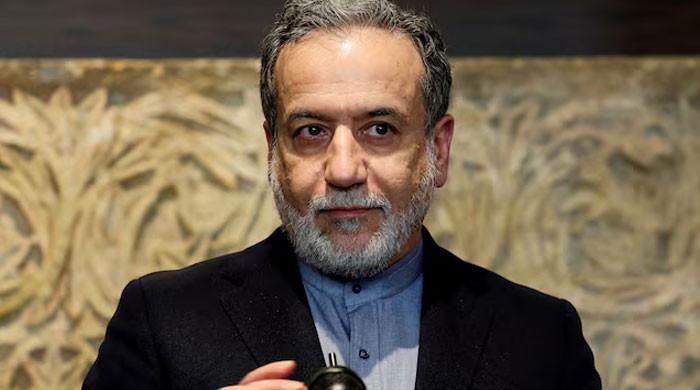Tehran: Iran’s Foreign Minister will travel to Russia this week to talk about the country’s nuclear program, a few days before a new round of indirect negotiations with the United States.
On Saturday, Abbas Araghchi held conversations with the envoy of the Middle East of the United States Steve Witkoff in Oman, the highest level negotiations since the 2015 nuclear agreement collapsed.
The president of the United States, Donald Trump, who withdrew from the agreement, has brought Iran back to the care center since he returned to office in January.
In March, he sent a letter to the Supreme Leader of Iran, Ayatolá Ali Khamenei, asking for nuclear conversations and warning of possible military actions if Tehran refused.
Western countries, including the United States, have long suspected Iran to pursue nuclear weapons; An accusation, Tehran has constantly denied, insisting that its program is for peaceful purposes.
Russia, a nearby ally of Iran and part of the 2015 agreement, and China has been involved with Tehran in recent weeks about its nuclear program.
“Dr. Araghchi will travel to Moscow at the end of the week,” said the spokesman of the Ministry of Foreign Affairs, Esmaeil Baqaei, and added that the previously planned trip would be “an opportunity to discuss the latest developments related to Muscat’s conversations.”
The spokeswoman for the Russian Foreign Ministry, Maria Zakharova, said that Araghchi would meet her Russian counterpart Sergei Lavrov and other officials.
Iran and the United States have described Saturday’s discussions as “constructive.”
Moscow welcomed Iran-United States conversations, as he pressed for a diplomatic solution and warned that military confrontation would be a “global catastrophe.”
Another round of conversations between Iran and the United States will be held in Oman on Saturday, said the spokesman of the Ministry of Foreign Affairs to the official Irna news agency. Rome had previously been summoned as a possible place.
‘Red lines’
Baqaei said that the following set of conversations would continue to be indirect with Omaní mediation, adding that direct conversations “were not effective” and “are not useful.” Oman’s Foreign Minister moved between the two delegations in the last conversations.
Baqaei had previously said that the only approach to the next conversations would be “the nuclear problem and the lifting of the sanctions”, and that Iran “will not have any conversation with the US side on any other issue.”
On Sunday night, Irna informed that Tehran’s regional influence and his missile abilities were among his “red lines” in the conversations.
Washington restored the sanctions of jaws against Tehran after withdrawal from the 2015 agreement three years later.
Iran continued to adhere to the agreement for a year after Trump’s withdrawal, but then began to retreat.
Iran has constantly denied that he is looking for nuclear weapons.
Trump addressed journalists on Monday with respect to Iran, saying “I will solve that problem” and “that is almost easy.”
However, it is not clear if their comments referred specifically to nuclear negotiations or broader problems that involve the Islamic Republic.
Baqaei reiterated that Iran would receive the United Nations Nuclear Surveillance Chief, Rafael Grossi, in the next few days, but pointed out that the details of his trip were still “to decide.”
In a publication about X, Grossi confirmed that he would go to Tehran “at the end of this week.”
“Continuous commitment and cooperation with the agency are essential at a time when diplomatic solutions are urgently needed,” he said.
Later, Irna reported that Grossi would arrive on Wednesday and meet Araghchi and Mohammad Eslami, head of the Iran Nuclear Energy Agency.
The head of the International Atomic Energy Agency visited Iran for the last time in November when he had conversations with the senior officials, including President Masoud Pezeshkian.
In its latest quarterly report in February, OIEA said Iran had an estimate of 274.8 kilograms (605 pounds) of enriched uranium up to 60 percent, which far exceeds the limit of 3.67 percent established under the 2015 agreement and is much closer to the 90 percent threshold required for the material of origin of weapons.




